|
I had an off-day last Friday and so spent the afternoon with my wonderful publicist, Nicole Michael, and her husband, Jacob. From Christmas last year, Nicole and Jacob gave me a copy of Hark!, the Beatles-themed holiday album by The Fab Four. I had ideas for a gift, as well. I've blogged before about my drawings, and Nicole is a big Ringo fan, so I wanted to do a drawing of a drum set. The problem is drum sets are REALLY HARD to draw - especially only using music notes, like I do! So I never did make a decent drum set drawing... I did, however, find a more suitable replacement: Yellow Submarine. And so, almost six months after the holiday, I finally delivered Nicole's Christmas gift. My last Michigan stop (at least until September) will be tonight in Mattawan; tomorrow I return home to Indiana to speak in Westfield.
Monday, 12 June 2017, 6:30-8:00 p.m. Antwerp Sunshine Library, 24823 Front St, Mattawan, MI The Beatles' Alter Ego, Sgt. Pepper's Lonely Hearts Club Band Since its release in 1967, the Beatles' Sgt. Pepper's Lonely Hearts Club Band has often been regarded as the single greatest rock album ever made, and one of the first rock concept albums. This 90-minute multimedia presentation observes and discusses the landmark album track by track, citing musical and historical precedents, and illustrating the development of the songs through excerpts from interviews with the band members and clips of discarded takes. Tuesday, 13 June 2017, 6:30-7:30 p.m. Westfield Washington Public Library, 333 W Hoover St, Westfield, IN The Beatles: Band of the Sixties Explore the music of The Beatles in this 60-minute multimedia presentation (part history and part musical analysis) spanning the full 1960's: beginning with the band's seminal visits to Hamburg, continuing through Beatlemania, and concluding with Abbey Road. The program will be supplemented with audio clips of music and excerpts from interviews with the band members.
0 Comments
In addition to being a huge Beatles fan, I'm also a huge baseball fan. So I made a point of attending a Tigers game the other day... ...and adding a Tigers cap to my MLB collection, which now stands at 27 of the 30 teams (I'm missing only the Seattle Mariners, Houston Astros, and New York Yankees - but who would ever want a Yankees cap?). I also inadvertently encountered what has to be Detroit's most famous road - and probably the second-most-famous road in pop music (behind Abbey, of course): And just to counter-balance the pop music reference with a classical music reference, here's a license plate I spotted in Warren, MI on Tuesday: Back to the pop music world, I deliver my JFK/Beatles program this afternoon in western Michigan:
Saturday, 10 June 2017, 2:00-3:00 p.m. Bloomingdale Communicaitons, 101 W. Kalamazoo St, Bloomingdale, MI From the Shadow of JFK: The Rise of Beatlemania in America Many Beatles authors have cited John F. Kennedy's assassination on 22 November 1963 as a cause of the Beatles' sudden popularity in the United States in early 1964. Their logic: Kennedy's assassination made America sad, then the Beatles made America happy again. But this commonly accepted answer is overly simplistic. The real answer is that Kennedy's life and death inadvertently primed the nation for the Beatles' arrival and success. This multimedia program will explain how and why. BEATLES MINUTE Page Updated, & "The Beatles' Alter Ego, Sgt. Pepper" at the Arthur J. Miller Library6/6/2017 I have finally updated my BEATLES MINUTE webpage to include the updates from the past several months. The full 43-part series can now be viewed by clicking here. With a couple of lite weeks at the end of this month, I'm planning to produce a few more BEATLES MINUTES:
And I'm open to suggestions for additional topics :-) This evening I drive to Warren, Michigan to celebrate the 50th anniversary of Sgt. Pepper:
Tuesday, 6 June 2017, 6:00-7:30 p.m. Arthur J Miller Public Library, 5460 Arden Ave, Warren, MI The Beatles' Alter Ego, Sgt. Pepper's Lonely Hearts Club Band Since its release in 1967, the Beatles' Sgt. Pepper's Lonely Hearts Club Band has often been regarded as the single greatest rock album ever made, and one of the first rock concept albums. This 90-minute multimedia presentation observes and discusses the landmark album track by track, citing musical and historical precedents, and illustrating the development of the songs through excerpts from interviews with the band members and clips of discarded takes. And tomorrow I head north to Lexington: Wednesday, 7 June 2017, 6:30-7:30 p.m. Lexington Moore Public Library, 7239 Huron Ave, Lexington, MI The Beatles: Band of the Sixties Explore the music of The Beatles in this 60-minute multimedia presentation (part history and part musical analysis) spanning the full 1960's: beginning with the band's seminal visits to Hamburg, continuing through Beatlemania, and concluding with Abbey Road. The program will be supplemented with audio clips of music and excerpts from interviews with the band members. Over the last four days, the University of Michigan at Ann Arbor School of Music hosted a conference celebrating the 50th anniversary of Sgt. Pepper's Lonely Hearts Club Band. Dozens of presenters analyzed seemingly every aspect of the album from a consideration of Indian musical techniques in 'Within You Without You' and the influence of British music hall on Pepper to the BBC banning 'A Day in the Life' and the influence of Pepper on Tears for Fears and Billy Joel. It was a fascinating weekend, and I've included summaries of a handful of highlights below (and this is just 11 of the 34 presentations): Gordon Thompson, professor of music at Skidmore College in Saratoga Springs, NY, spoke on the lyrics "I'd love to turn you on" that resulted in the BBC banning 'A Day in the Life'. His research produced several internal memos from BBC associates that detail in considerable depth the reasoning behind the ban, which I had never seen before. He also suggested that one reason the song was banned was a power struggle: The BBC wanted to show The Beatles that they had authority over the band, so the banning was less about the actual lyrical content and more about "taking down a big band". This reminds me of Normal Pilcher of the London Drug Squad and how he wanted to bust The Rolling Stones and The Beatles more for his own ego than anything else. Billy Harrington, a former UMich student, illustrated several of Ringo's drumming techniques including his melodic fills on 'With A Little Help From My Friends', 'Lovely Rita', and 'A Day in the Life' as well as his unique hi-hat skills on 'Getting Better', 'Fixing A Hole', 'Being for the Benefit of Mr, Kite!', and 'Good Morning Good Morning'. He also demonstrated why Ringo's left-handedness created problems for his style of fills and how it yielded a unique stylistic solution. Mark Spicer, Professor of Music at HUNTER (not Huntington) College of the City University of New York, delivered a fascinating program on how The Beatles inspired Tears for Fears' 'Sowing the Seeds of Love' (1989). He illustrated how the verse vamp is strikingly similar to 'I Am The Walrus', how the chorus is based on 'Hello Goodbye', how the trumpet solo recalls 'Penny Lane', and how the counter-melody of verse 3 self-references Tears for Fears' own 'Shout' just as 'All You Need Is Love' self-referenced The Beatles' own 'She Loves You'. I know next to nothing about Tears for Fears, but I look forward to exploring their catalog. Similarly, Joshua Duchan, professor of music at Wayne State University here in Michigan, presented on the influence of Sgt. Pepper on Billy Joel's 1982 album The Nylon Curtain. They are both concept albums: Pepper is a fake live performance by a fake band, and Nylon addresses "the disintegration of the American dream". They both feature narratives of escapism: Pepper's band is a disguise for The Beatles, and Joel's opening track 'Allentown' includes the lyrics "it's getting very hard to stay". And both albums reprise their opening tracks. I know about as much about Billy Joel as I do about Tears for Fears, which is to say little more than nothing (the only reason I know Billy Joel at all is because Weird Al Yankovic parodied 'Piano Man' to create 'Spiderman'), but I immediately purchased The Nylon Curtain and listened to the entire album while jogging this morning. I'll be listening to The Nylon Curtain a lot more! One of the standout presentations of the weekend was Somangshu Mukherji, professor of music theory at UMich, who spoke on Indian song forms and how George Harrison blended eastern and western musical structures in 'Within You Without You'. He commented on how Indian song forms follow four-square phrase patterns (4 measures of 4/4 time for a total of 16-beat phrases). I found that ironic since much Indian music also plays with constantly changing meters. Anyway, Harrison did NOT use four-square phrasing, instead alternating 16- and 8-bar phrases in each verse. This yields a 24-measure verse, which is not a multiple of 16. He also pointed out that Indian forms typically implement an "orchestrational crescendo" in which the intensity builds slowly until it ends in an exciting climax. Harrison, however, chose instead to bring back the beginning material in sort of "recapitulation", which is a practice more common in western musical styles. Mukherji's lecture was followed by a spectacular demonstration in which an ensemble (tabla, bass guitar, soprano saxophone, autoharp, vocals, electric guitar, and sarangi) reinterpreted 'Within You Without You' to conform more to traditional Indian structures - they extended Harrison' 24-bar verses into 32 bars (which is a multiple of 16), and concluded with an intense and vituosic finale instead of the comparatively calm recap heard on the album. Part of what made the performance so compelling was that the performers had an absolute mastery of their instruments. All in all, it was perhaps the most informative and impressive session of the entire conference. Walter Everett, our host for the weekend and undoubtedly America's leading Beatles scholar, spoke on the step-by-step recording process of 'A Day in the Life'. He played a particularly noteworthy passage from take 6 - before the orchestral sound masses were added - in which Paul played a rapid descending tremolo glissando on his bass guitar, which the orchestral segue would eventually replace. It immediately reminded me of a similar technique Paul employed in the finished recording of 'I Want You (She's So Heavy)' at 2:03, 2:15, 4:43, and 4:55. Back in 2014, Ken Womack hosted a 50th anniversary celebration of The Beatles' debut on The Ed Sullivan Show at the University of Pennsylvania-Altoona. One of the standouts at that conference was Drew Nobile, who presented on modulation by whole tone in Beatles music. Based on the quality of that paper, I fully expected his follow-up at this conference to be equally authoritative and enlightening. Indeed, he didn't disappoint. Drew spoke about The Beatles' approach to verse-chorus form and how "The Beatles' narrative paradigm is one of opposition, not hierarchy" as opposed to the "narrative paradigms in post-1970 verse-chorus forms" in which the "chorus is superior to the verse". It's a fascinating premise and indeed many Beatles songs conform to that pattern, including 'Penny Lane' and 'Lucy in the Sky With Diamonds'. I also met Aviv Kammay in Altoona back in 2014, who coincidentally lives in Madison, Wisconsin, where my brother resides and where I visit regularly. Aviv showed how The Beatles often "defused, deflated, and diluted" some of their more serious artistic statements in an effort to "connect with their humble Liverpudlian roots". He defined "defusal" as "preemptively placing content within a light/nonsensical framework" and cited Lennon's silly spoken introductions to the official recordings of 'It's All Too Much', 'Let It Be' and 'Two Of Us' as examples, as well as a Paul's famous "Sophie Tucker" spoken intro to a live performance of 'Till There Was You'. He then defined "deflation" as "concluding with a gesture that undermines a potential serious statement" and cited 'Her Majesty', the Sgt. Pepper run-out groove, the laughter at the end of 'Within You Without You', and the coda of 'Strawberry Fields Forever' as examples. Finally, he defined "dilution" as "inserting elements that disrupt the artistic register of the content" and cited the fake Spanish words in 'Sun King', the school yard sexual slang "finger pie" reference in 'Penny Lane' as examples. Not only was this notion illuminating, it was also hilarious to see/hear all these examples in context. Another highlight of the conference (and another acquaintance whom I first met at the Altoona conference) was Kit O'Toole, who spoke quite eloquently about a topic that was anything but eloquent: British music hall and its influence on Sgt. Pepper. Music hall is working class entertainment and consequently often mocks authority, features bawdy and crude content and humor, and encourages audience participation. Kit pointed out that Ringo's alter ego, Billy Shears, functions as a music hall performer, likely modeled after Wilkie Bard's 'Let Me Sing'. Indeed, a side-by-side comparison of the lyrics is quite revealing: 'Let Me Sing' Let me sing for I'm bursting to give you a song. Let me sing and forgive me if I should go wrong. Let me sing and you'll make me as proud as a king. Do whatever you like with me after but let me sing. 'With A Little Help From My Friends' What would you think if I sang out of tune? Would you stand up and walk out on my? Lend me your ears and I'll sing you a song And I'll try not to sing out of key. 'Friends' also employs a call-and-response style that I've always attributed to Gospel influence on The Beatles (as in 'Tell Me Why'). But Kit showed that it's more likely the influence of music hall, which typically promotes audience participation. She played Florrie Forde's 'Down at the Old Bull and Bush' as an example. Kit then illustrated how 'Lovely Rita' also employs music hall traits in the sexually suggestive humor, the knocking down of authority, and its escapism from the mundane. I found her talk to be particularly illuminating and erudite, plus exceptionally well-delivered and engaging. My good friend and collaborator David Thurmaier spoke on the "integration of classical and rock instrument on Sgt. Pepper". He opened with a clip (starting about 4:30) from this fascinating YouTube video of Leonard Bernstein critiquing rock music... ... and then argued that early Beatles uses of classical instrumentation were separated from the band - such as the flute on 'You've Got To Hide Your Love Away', the horn on 'For No One', and the trumpet on 'Penny Lane' - but starting with 'Strawberry Fields Forever' and continuing on Pepper those classical instrument played a more integral role by carrying more musical weight. As Dave put it, "outside musicians became members of the band." The second verse of 'Strawberry', for example, employs only the trumpets and cellos (and backwards cymbals) - there is no guitars, bass, or drum set. Dave is co-host of I've Got a Beatles Podcast!, and during the conference he invited Kit O'Toole, Aviv Kammay, Katie Kapurch, and myself to a discussion of Pepper and the conference. That conversation can be heard here. The conference concluded yesterday with Ken Womack speaking on George Martin's life leading up to his meeting with The Beatles in 1962. Ken is the author of a two-part biography of Martin to be released this year and next. He's an extremely engaging speaker and a hugely prolific author, and I can't wait to get my hands on his new book! Since that 2014 Altoona conference, Ken moved to New Jersey, where he is now Dean of the McMurry School of Humanities and Social Sciences at Monmouth University. Ken and I will be co-presenting on Martin at the Monmouth library next month: Thursday, 13 July 2017, 6:30-8:00 p.m. Monmouth County Library , 125 Symmes Dr, Manalapan, NJ With a Little Help from Their Friend: A Celebration of the Life and Work of Beatles Producer George Martin One under-appreciated aspect of The Beatles' iconic music was their producer, George Martin, who took the raw, intuitive songs of John Lennon, Paul McCartney, and George Harrison and helped turn them into extraordinary recordings. This 90-minute multimedia presentation will take two parts: first, an examination of Martin's background and what lead him to The Beatles; second, an analysis of how Martin contributed to the band's legendary songs. Ken will also be hosting a conference on The White Album titled "Producing an Enigma for the Ages" in November 2018. I look forward to an equally enlightening conference next year. While most of my conference colleagues have already departed Ann Arbor, I won't leave until tomorrow, as I have a program at the Ann Arbor library this evening:
Monday, 5 June 2017, 7:00-8:00 p.m. Ann Arbor District Library, 343 South Fifth Ave, Ann Arbor, MI They're Gonna Put Me In The Movies: The Beatles on Film In addition to achieving tremendous success with their records, The Beatles also achieved great success with their movies – and the band's history can be understood quite clearly through the progression of their films. This 60-minute multimedia program will discuss A Hard Day's Night (1964), Help! (1965), Magical Mystery Tour (1967), Yellow Submarine (1968), and Let it Be (1970) with the purpose of tracing the band's artistic evolution through observation and analysis of their films. |
Beatles BlogThis blog is a workshop for developing my analyses of The Beatles' music. Categories
All
Archives
May 2019
|
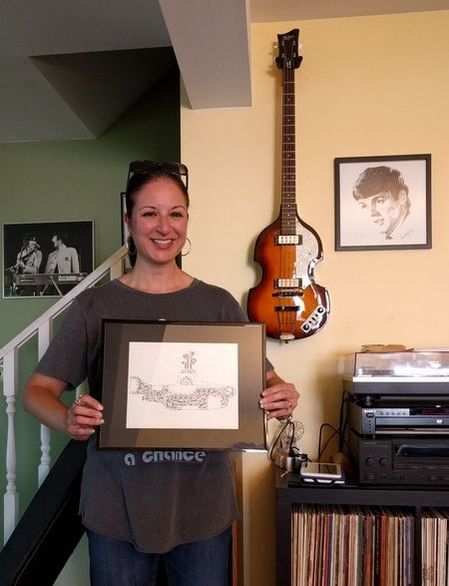
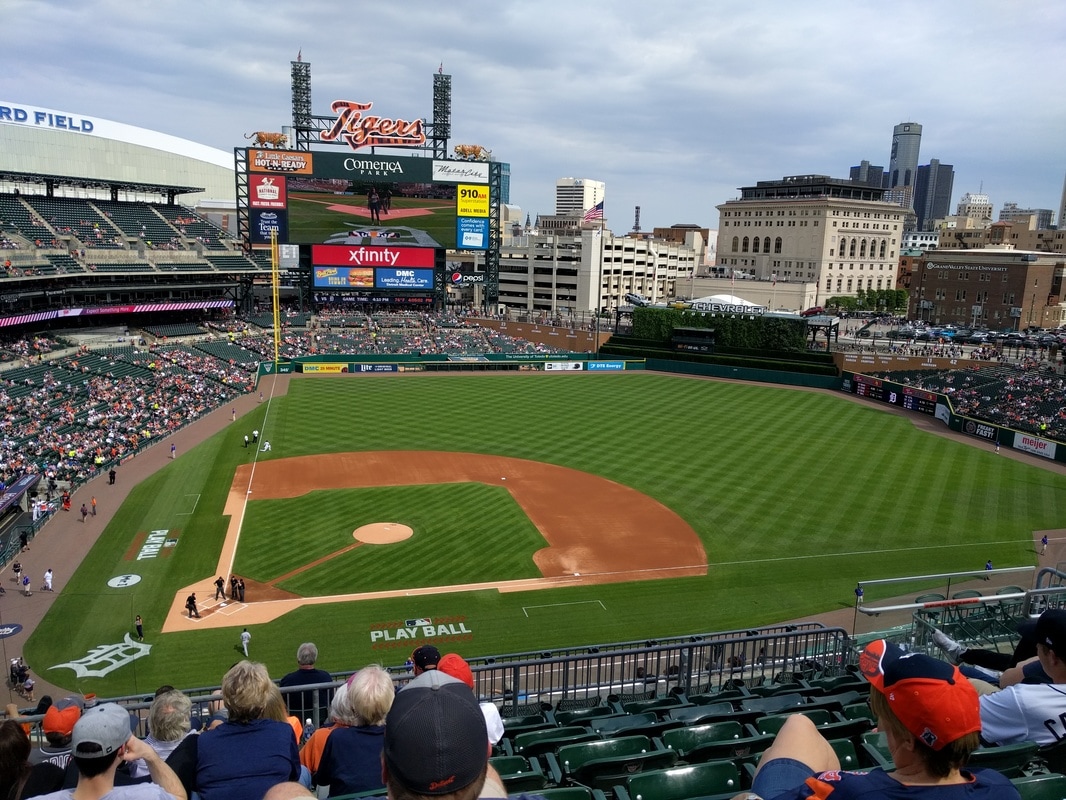
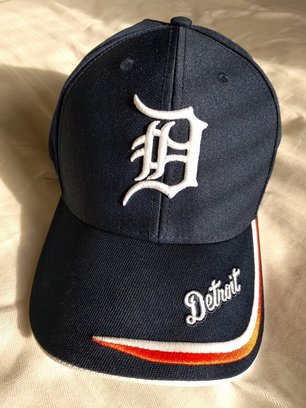
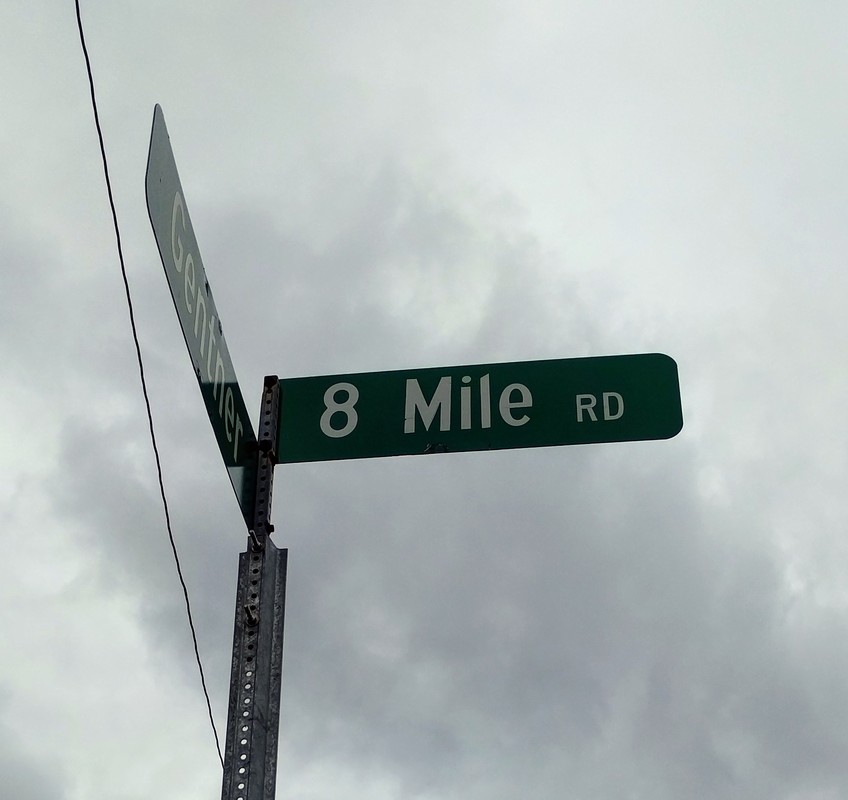
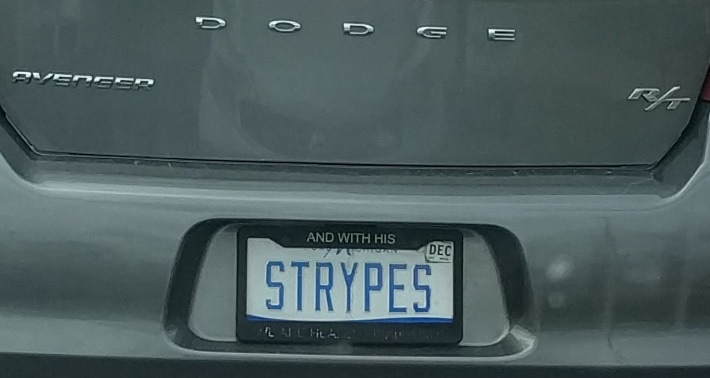
 RSS Feed
RSS Feed
